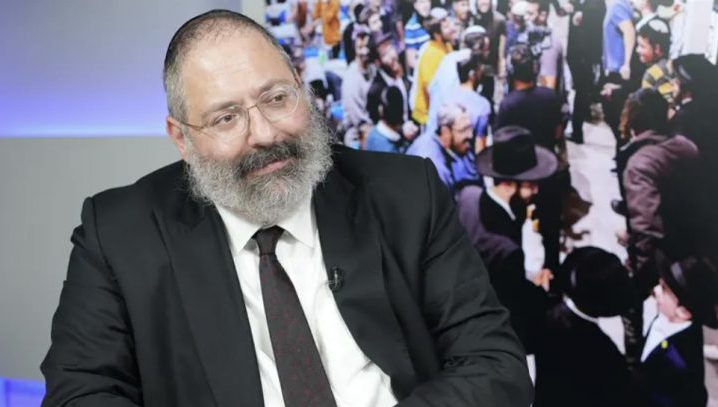Why Reb Shimon ben Yoachai’s passing came to be known as a “Wedding,”
This Friday, known in Hebrew as Lag Ba’Omer, the thirty-third day of the omer,[1] is the anniversary of the passing of one of the greatest sages and spiritual giants in Jewish history, Rabbi Shimon bar Yochai.
Rabbi Shimon, who lived in Israel under Roman occupation around 165 CE (approximately one hundred years after the destruction of the Second Temple in 70 CE), was an extraordinary scholar[2], leader, sage, and mystic. He was the author of the Zohar, the most basic work of Kabbalah, revealing to the world the underlying theology of Judaism, its inner soul and energy, and initiating a new era in the development and exposure of Jewish mysticism.
The most significant revelation came about on the day of Rabbi Shimon’s passing, on which he expounded for many hours on the most intimate secrets of the Divine wisdom. That day was 18 Iyar, or Lag Baomer.
Centuries were to pass before the great Kabbalist Rabbi Isaac Luria (1534-1572) would proclaim, “In these times, we are allowed and duty-bound to reveal this wisdom,” and Rabbi Israel Baal Shem Tov (1698-1760) and his disciples were to make them accessible to all via the teachings of Chassidus. But Lag Baomer remains the day on which “Penemeyus Hatorah,” the spiritual and emotional dimension of Judaism, emerged from the womb of secrecy and exclusivity.
Before his passing, Rabbi Shimon instructed his disciples to observe his yartzeit (the day of his passing) as a time of joy and festivity,[3] since the day of a person’s death marks the culminating point of all that he achieved in the course of his life on earth.[4] Since then, Jews the world over, especially at his resting place in Meron, Israel, celebrate this day with singing, dancing, kindling fires, Torah study, parades, field trips for children, and an increase in love and unity.
A Wedding?
Yet there is something strange about this day. In many Jewish works, it is called “Helulah D’Rashbi”—the “wedding” anniversary of Rabbi Shimon bar Yochai. Never before has a yartzeit, the anniversary of a person’s death, been described as a “helulah,” a wedding, and for good reason: death and marriage are opposed. Death terminates a marriage.[5]
Why would a yartzeit, a day of passing, be called a “wedding?” And why, from all yartzeits, was it the one of Rabbi Shimon bar Yochai which first received the title of Hilula-wedding?[6]
Grab and Eat
The Talmud makes the following observation:[7]
עירובין נד, א: אמר ליה שמואל לרב יהודה, שיננא! חטוף ואכול חטוף ואישתי, דעלמא דאזלינן מיניה כהלולא דמי.
The sage Shmuel said to his student Rabbi Yehudah: “Sharp one! Grab and eat, grab and drink! The world that we are passing through is like a wedding.”
Obviously, the great Talmudic sage Shmuel was not training his disciple, Rabbi Yehudah, to engage in gluttony. What then was he telling him? The 11th-century French Talmudic commentator, Rashi, explains:
חטוף אכול—אם יש לך ממון להנות עצמך אל תמתין עד למחר שמא תמות ושוב אין לך הנאה. דעלמא דאזלינן מיניה גרסינן כהלולא דמי—היום ישנו ולמחר איננו, דומה לחופה שהולכת מהר.
Shmuel’s point was to warn his student not to wait until tomorrow to use his money because a person has no assurance that he will be alive tomorrow to enjoy his money. Life is similar to a wedding, which swiftly passes.
Sometimes, in our eagerness to think about the long-term, which is important, we forget that life is happening now and we must live in the moment. Some people will never allow themselves to enjoy their wealth and success today because there is always a “tomorrow” they have to save up for. But life is short, and you can’t delay your happiness till tomorrow. John Lennon was not the first to understand that “Life is what happens to you while you’re busy making other plans.”
This is sound advice. But why, to illustrate the brevity of life, does Shmuel give the example of a wedding? There are other events that pass swiftly. Shmuel could have said, “The world that we are passing through is like a banquet,” or “like a day,” or “like a dream,” or “like a thunderstorm,” or “like a sun shower.” Why the example of a wedding to describe a fleeting experience?
Clearly, Shmuel is conveying a deeper message to his student than “life is short, live today!” The example of the wedding is essential to the understanding of the message.
The Paradox
At the heart of marriage lay a paradox.
Marriage, by definition, is a restrictive experience. As long as you are a bachelor, you can dance to your own beat. Once married, you must dance to two beats, and sometimes they are divergent or conflicting.
Compromise becomes the name of the game. People are different. Men and women are very different. Living together as a husband and wife requires each to “reconfigure” the database of his or her psyche, to create space for a new “program” or, more accurately, a new “hard drive.” I must create space for Thou. Every successful marriage requires serious commitment, surrender, and exclusivity.
Yet, on the other hand, marriage elevates the self to infinite heights. It is precisely through marriage and the work it requires to deal with all the internal wounds triggered by such an intimate relationship that one discovers oneself in a completely new way. In the space of connectivity and commitment, we discover our deepest potential.
What is more, without the bonding of opposite genders, reproduction is impossible. In the human race, just as in the animal kingdom and the botanical world, it is the connection of female and male that creates offspring.
All of us are mortal. Our creations, too, are mortal. Even our most impressive creations—the Roman Empire, Bear Sterns, and Lehman’s Brothers—are subject to decline and death. There is only one exception: Children. They outlive us, and their children outlive them. Your children constitute your link to eternity. We are here today because thousands of years ago our great-great-grandparents married and bore children. Those ancestors are long gone; their creations are long gone; their homes, towns, and cities have long crumbled. But – we are here. And they are here today through us.
When you spend an extra three hours at the office, building your company, you are investing in something that is at best temporary. When you spend that time with your children—reading them a story, playing a game with them, schmoozing with them, bonding with them, listening to them, validating their emotions, and showering them with love and wisdom—you are investing in eternity.
This is the paradox of marriage: The marital relationship will impose limitations on your life. It will require each party to tame his or her self-expression; it will trigger you in profound ways and force you to confront uncomfortable and unresolved wounds. When a couple decides to have children, these limitations become even more dramatic. Life revolves not around your desires but your children’s needs.
Yet, in this very process, you become limitless and infinite. If you want to remain unrestricted in your life, unbound and unlimited, you ensure your finitude. Your life ultimately comes to an end. Conversely, by choosing to become finite, you become infinite; by choosing to become limited, through entering into a relationship and building a family, you access infinity and achieve eternity.
[This, of course, is not limited only to those who marry or have children. Even those who, for whatever reason, could not get married or have children, have lives enshrined in eternity, as we will explain below.]
The Ultimate Marriage
This paradox constitutes the very essence of life.
Our marriage to our spouse is essentially our second marriage. All of us experience a first marriage at the moment of birth—when our souls “marry” our bodies and they “move in” together for life.
The soul and the body are, at the beginning of their marriage, two opposites: one is physical and focused on physical survival; the other is infinite consciousness, a wave of Divine infinity and oneness. One (at least initially) defines bliss as material pleasure; the other pines for transcendence, and the ultimate truth. One craves physical safety and comfort; the other yearns for attachment and intimacy with the Source of all life, with the core and energy of all reality. One sees the objective of life as meeting its needs for survival; the other—to become one with G-d.
The Farmer
The Midrash presents this parable:[8]
A farmer once married a princess, and she moved to the farm. He was a nice man and treated her respectfully. The first day, he taught her how to milk the cows; the second day, how to feed the mules; the third day, how to clean the horses. He gave her a comfortable bed near the stable, teaching her about the crow of the rooster that would awaken her.
Yet her life was miserable.
He consulted his father-in-law, the king. “I am trying so hard to satisfy your daughter, to no avail. She is miserable. What am I to do?”
The king responded: You’re a fine and sincere young man. But you must understand: your wife grew up in royalty; the life of the farm does not speak to her heart. You can’t offer her what she needs because you have no concept that it exists.
This is a parable of the soul that married the body. The body is the peasant farmer, offering us success and power and all other kinds of potatoes and tomatoes. Most of us live thinking that we are peasants, seeking comfort and validation. That is why, however much we have, it is never enough. Because we are feeding ourselves the wrong thing. It can be everything the peasant has ever dreamed of, but it’s still not enough because the princess has been raised on finer stuff.
Our bodies and animal consciousness mean well. Our Divine soul is anxious, so the body tells our soul: Wait till you see what’s for breakfast. The body gives the soul the most delicious breakfast, lunch, and dinner. It creates comfort zones and ensures we get the validation, pleasure, affluence, and influence we crave. The poor animal soul thinks that if it becomes a celebrity, or gets some attention, or feels like a success story, life will be great. But, alas, we still have a void; the void of a soul yearning for attachment — attachment to the ultimate reality, to G-d, the source and essence of all. The Divine soul does not need attention and validation; it craves an ego-death, so it can surrender completely and return to its source, and the only true reality.
So the body takes the soul and provides it with workable coping mechanisms to ensure safety and comfort; it may even take the soul on beautiful vacations, build it a fine home, and grant it precious jewelry. It may help it become successful socially, financially, and maybe even religiously. But the delights of the “farm” will not do the trick. The soul needs “bitul” — it is seeking the end of separateness; it is searching for oneness with the Divine; it misses G-d.
As the soul enters into a body for a lifelong “marriage,” its self-expression becomes severely limited, as it is living with a partner who does not initially even understand its language. And unlike marriage, where you can run away from your husband for a few hours to get some fresh air, the soul can never leave the body to take a break; it remains confined within the body. Sometimes, like in a marriage, the soul is completely ignored.
Yet, just as in a physical marriage that it is only as a result of the unity between man and woman that they can find their truest depth and achieve eternity, so it is with the marriage of soul and body. It is only in this world, while enclothed in the body, that the soul can transcend itself and reach heights completely impossible to reach if it were to remain “single” in heaven.
Only in this world, through its arduous work within and with the body and the animal consciousness, can the soul discover its truest self — its deepest relationship with G-d, most powerfully and intimately, one that was not possible in the paradise of heaven. Because it is here on earth that the soul needs to choose the relationship, own it, fight for it, and find the courage to choose trust over fear, surrender over shame and judgement of self and others. Only in the container of the body and animal soul are we given the choice to surrender our egoic mind to infinite oneness.
It is only on earth, that we can experience transformation, completely going out of our fixed limitations and rebirthing ourselves. In heaven, we are what we are. On Earth, we can transform ourselves. An addict can experience recovery; an obnoxious, self-centered man can become noble and kind; a crooked liar can become an honest human being. An anxious person can learn trust; a depressed individual can learn to surrender; an angry or envious person can heal the mother or father wound; a man or woman immersed in self-shame and loathing can heal the sense of abandonment and discover their oneness with G-d. In this world, we can make real changes. True growth is possible.
And finally, only in this world, can we fulfill G-d’s Mitzvos and perform Divine deeds—the “children” created by the marriage of body and soul—through which they connect to G-d Himself, in his deepest essence and core.
Life On Earth is a Wedding
We can, at last, appreciate what Shmuel said to his student Rabbi Yehudah: “Sharp one! Grab and eat, grab and drink! The world that we are passing through is like a wedding.”
A wedding may seem like a limiting experience, yet it is precisely this limitation that allows you to reach your deepest potential, and what is more, lifts you on the wings of eternity. The same is true, suggested the Talmudic sage, concerning the world we pass through. Our journeys in this world may seem so restrictive and stressful, filled with agony, hardships, and pain. In paradise, there is no trauma; on earth, who can escape some form of abandonment? Even the most blessed life is filled with the anxiety of the soul confined in a material body.
Yet you have to know, said the sage Shmuel, that it is through the work in this world that the soul reaches its deepest potential and experiences radical, infinite, and eternal growth.
It is our journey here on earth that affords us the opportunity, each moment, to choose transformation, to choose trust, to confront our wounds and surrender to the all-pervading reality of Hashem.
In this world, we can become completely one with G-d through an ongoing relationship with Him, every moment, with every thought, word, and deed. We get to perform His mitzvos and saturate the cosmos with His Torah. This can only happen in this world. Hence, “grab and eat! Grab and drink!” Seize the moment!
Grab every mitzvah that you can do in this world, each one serves as a channel for Divine infinity. Cherish every moment you have. Because what may look like a fleeting and insignificant moment to you is really like a wedding, it is a gateway to the deepest of the deep and the holiest of the holy. Every moment we reveal the holiness and goodness embedded in our soul and our world carries within it the most awesome potential — the potential for the deepest unity, to become One with His essence.
This world, and every moment we enjoy in it, is like a wedding—it is a portal to infinity, a staircase to heaven, and that which is beyond heaven.
Grab every opportunity to do the work, the work of inner refinement and healing, with authenticity, emotional vulnerability, and connection, the work of finding G-d in Torah study and mitzvos, and in every moment of our day and night, and becoming a beacon of light and love for others.
Because you can’t do any of this in heaven’s paradise, where there are no blockages and traumas.
The Gift of Kabbalah and Chassidus
This is why it was the yartzeit of Rabbi Shimon bar Yochai that came to be defined as “Hilula,” as a wedding. He was the one who gave the Jewish world the gift of Penemeyus Hatorah, the inner core of Torah. What is Kabbalah and Chassidus?
On the surface, Judaism is all about structure—performing fixed laws at certain times, places, and in certain ways. Each mitzvah has its detailed, fixed structure etched in stone. Halakha, Jewish law, is detail-oriented: it obliges the Jew to do many things and to abstain from many others, and there are fixed times and rituals for everything.
This is the glory of Judaism — and it sustained our people for three millennia. Those who had deviated from the Torah and the Mitzvos, sadly, within a few generations were lost to our people. It is an irrefutable fact that Yiddishkeit has been the lifeline of the Jewish people, the sole reason for our survival amid chaos and suffering.
And yet, over the generations, it has become stale. Many Jews experience Judaism as a burden more than as a blissful opportunity. G-d Himself has become for many a difficult and painful topic and experience.
It is here where we can appreciate the soul of Torah–the teachings of Kabbalah and Chassidus.
One of the main themes of Jewish mysticism is to help us experience the Torah as a blueprint for internal healing and redemptive consciousness; how each of the mitzvos is a portal to infinity, to transcend structure and touch the Divine. Kabbalah and Chassidism focus extensively on the inner meaning of every aspect and detail of Jewish law and observance, demonstrating its cosmic significance and spiritual Divine power.
The teachings of Kabbalah and Chassidism explain at length the inner chemistry of the soul and the body and how every single one of us is infinite consciousness having a finite experience, so we can sublimate the finite and merge it with the infinite. It explains to us how the traumas and challenges of our journeys are the portals through which we touch our deepest holiness and wholeness.
Kabbalah and Chassidus reveal the significance and purpose of every moment in this world; the sacred quality of the body; the Divine music and mystery inside of every physical phenomenon; the depth and holiness of every creature in this world; the truth that matter is a manifestation of spiritual energy. They help us attune ourselves to the deepest frequency of reality — the Oneness of Hashem, “Ein Od Milvado” (there is nothing outside of Him), even though the pain of life is so real and challenging.
Rabbi Shimon is the one who helped us experience life as a “wedding”—a place where limitations are opportunities for infinity.
The final day of a person’s earthly life, says the mystics, marks the point at which “all his deeds, teachings, and work” achieve their culminating perfection and the zenith of their impact upon our lives.[9] So each Lag BaOmer, we celebrate Rabbi Shimon’s life and the revelation of the esoteric soul of Torah. We dance with the soul that showed us how life was a wedding, an opportunity to merge paradoxes and connect to eternity.
These teachings and experiences allow us to taste redemption even in exile, to experience the “wedding” between us and Hashem even as we struggle with concealment and loss, by leaning into the frequency of faith, trust, love, and surrender.[10]





